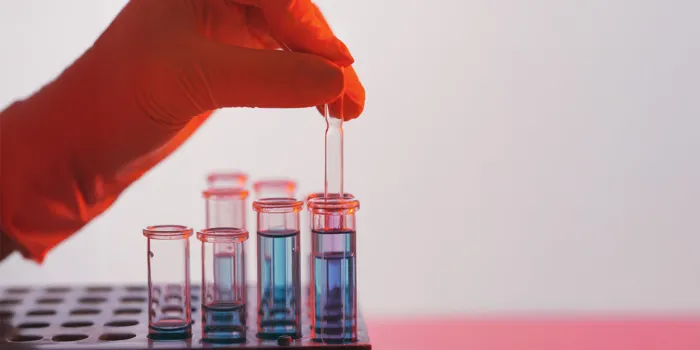For more than 50 years, the National Bleeding Disorders Foundation (NBDF) chapters, family foundations, and families have funded the prestigious Judith Graham Pool (JGP) Postdoctoral Research Fellowship. The research program gives postdocs the freedom to study bleeding disorders in novel ways, so that they may develop better treatments and perhaps, one day, a cure.
JGP fellows follow in the footsteps of the program’s namesake, Dr. Judith Graham Pool, who discovered in 1965 how to create cryoprecipitate (concentrated clotting factor), forever changing the way that hemophilia was treated.
“When these young scientists get this award, they’re so excited,” says Samantha Carlson, director of research for the National Bleeding Disorders Foundation. “They become really dedicated to this community. The majority of them stay in the coagulation field. That is critical for recruitment and retention in our small community.”
JGP fellows have opportunities to interact with people who have bleeding disorders, which is uncommon for researchers.
“Scientists in a lab don’t usually engage with community, but these researchers have come to our national conference,” Carlson says. “They’ve been able to interact with health care providers, patients, and families, which is why they’re in the business. They’re seeing their science impact real people, which is amazing and unique.”
Since the JGP program began in 1972, NBDF has invested more than $9 million to fund 109 research fellows. In 2024, NBDF chapters donated $30,500 to JGP. Individual donors, sustainable gifts, and endowments from chapters provided additional support. “We simply couldn’t do this without the chapters, and we are incredibly grateful for their support,” Carlson says.
Why Chapters Give
Chapters support JGP for different reasons. “It’s part of our mission that we support research for better treatments and cures,” says Melissa Compton, executive director of the Lone Star Chapter. “Community members see the value in giving and continuing the research, especially those who have been around a while and have seen the treatments improve.”
The New England Hemophilia Association (NEHA) informs their community about JGP fellows and their research efforts. “It’s important for families who are fundraising to know that part of their efforts are not only going to support NEHA’s vital programs and services, but they’re also going to support research,” says Rich Pezzillo, NEHA’s executive director. “The JGP program gives chapters like NEHA an opportunity to support future generations.”
The Hemophilia of Georgia (HoG) Chapter hopes that its JGP contributions will make a meaningful difference in the world. “Some of us who work at HoG jokingly say, ‘We’re working to be out of work,’” says Deniece Chevannes, HoG’s chief policy and compliance officer. “We want to find a cure. Funding research is a way to deliver on that promise to patients.”
NBDF Chapters That Supported JGP in 2024/2025
Platinum: $25,000+
Hemophilia of Georgia
Visionary: $10,000+
Champion: $5,000+
Mary M. Gooley Hemophilia Center
Greater Ohio Bleeding Disorders Foundation
New England Hemophilia Association
Advocate: $1,000+
Bleeding Disorders Association of South Carolina
Bleeding Disorders Foundation of North Carolina
Gateway Hemophilia Association
Hemophilia Association of the Capital Area
Pacific Northwest Bleeding Disorders
Supporters: Up to $1,000
Kentucky Hemophilia Foundation
Rocky Mountain Hemophilia & Bleeding Disorders Association
Southwestern Ohio Hemophilia Foundation
Virginia Hemophilia Foundation
Learn more about the Judith Graham Pool Research Fellowship program.

